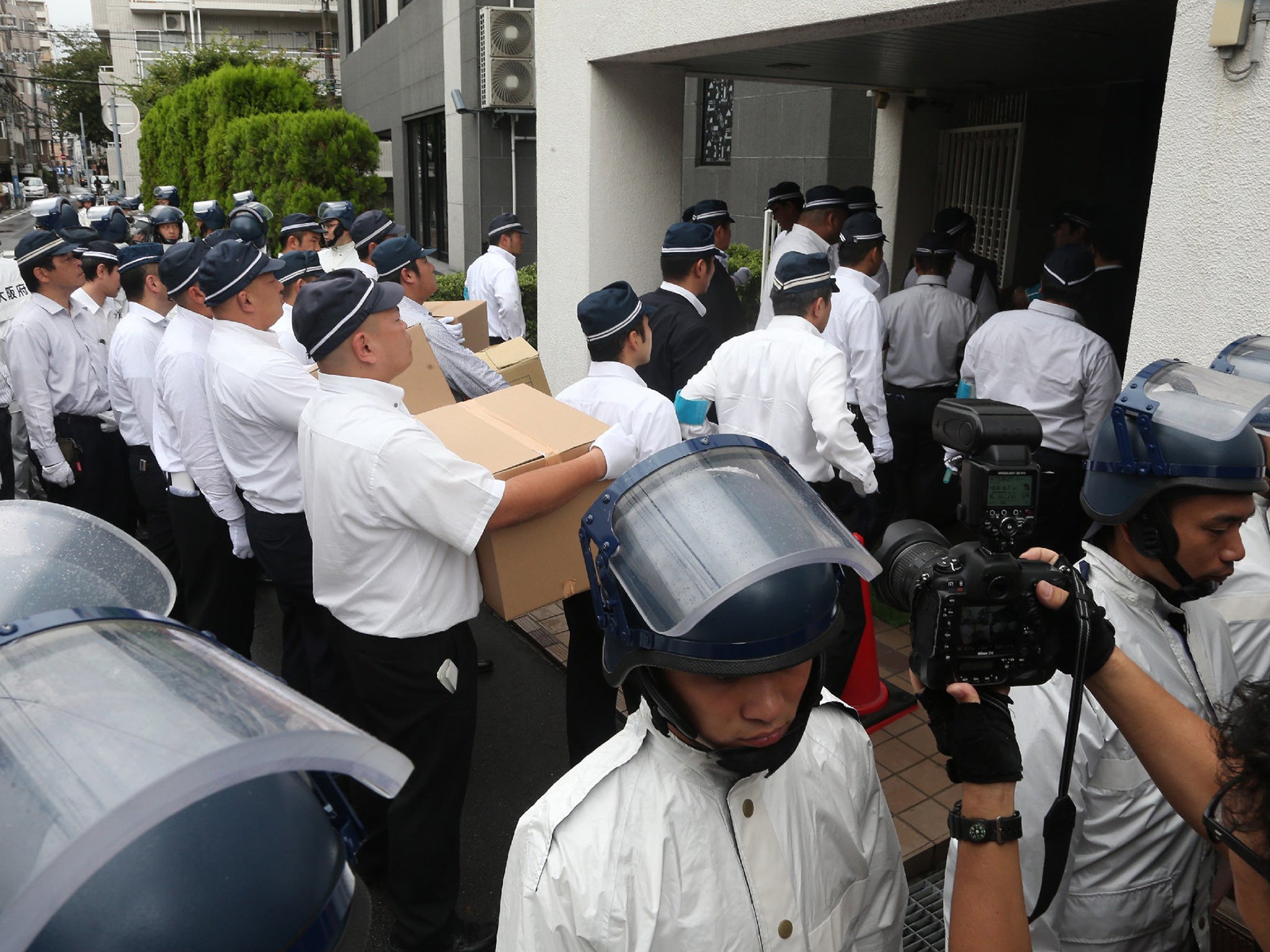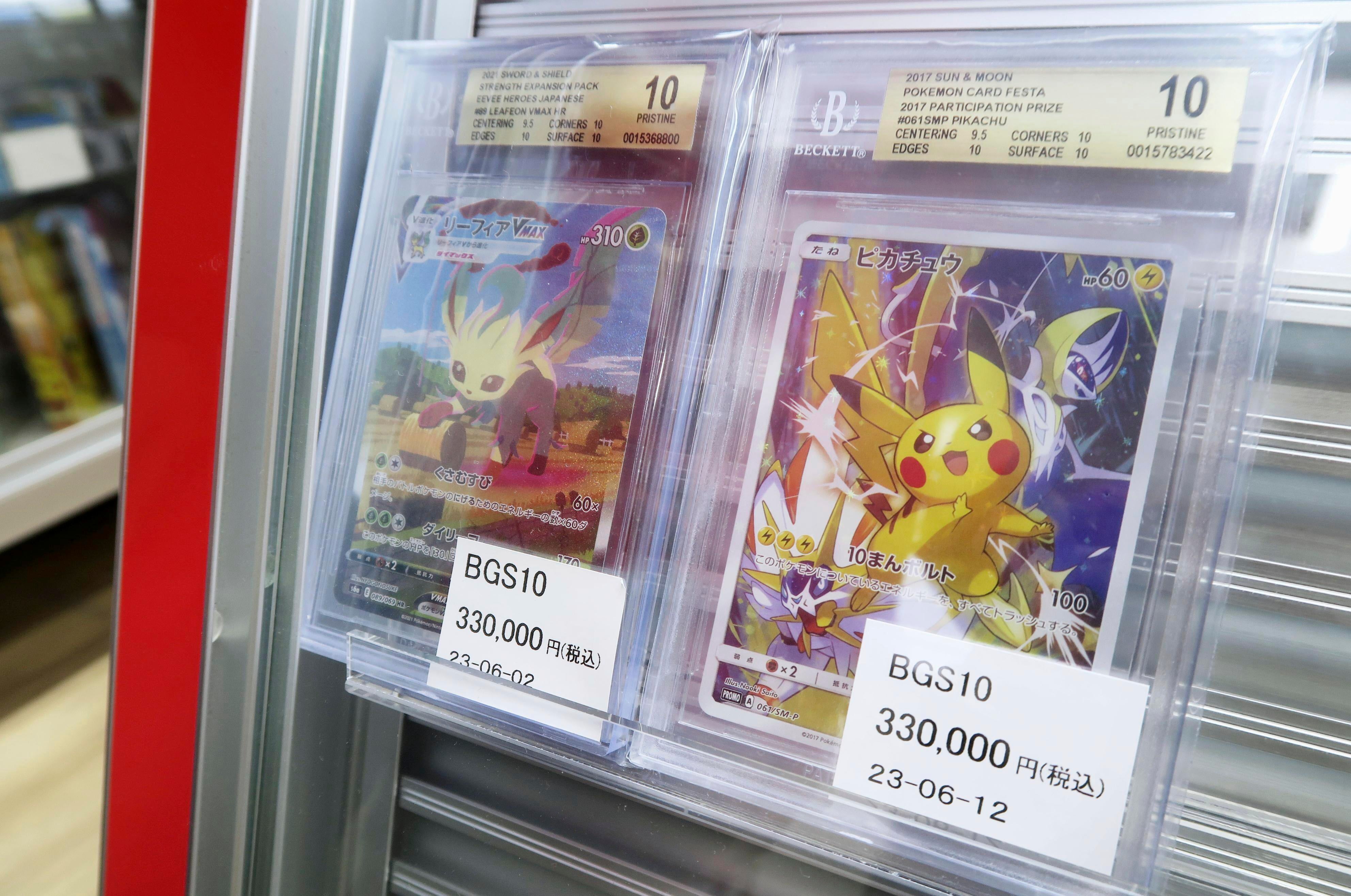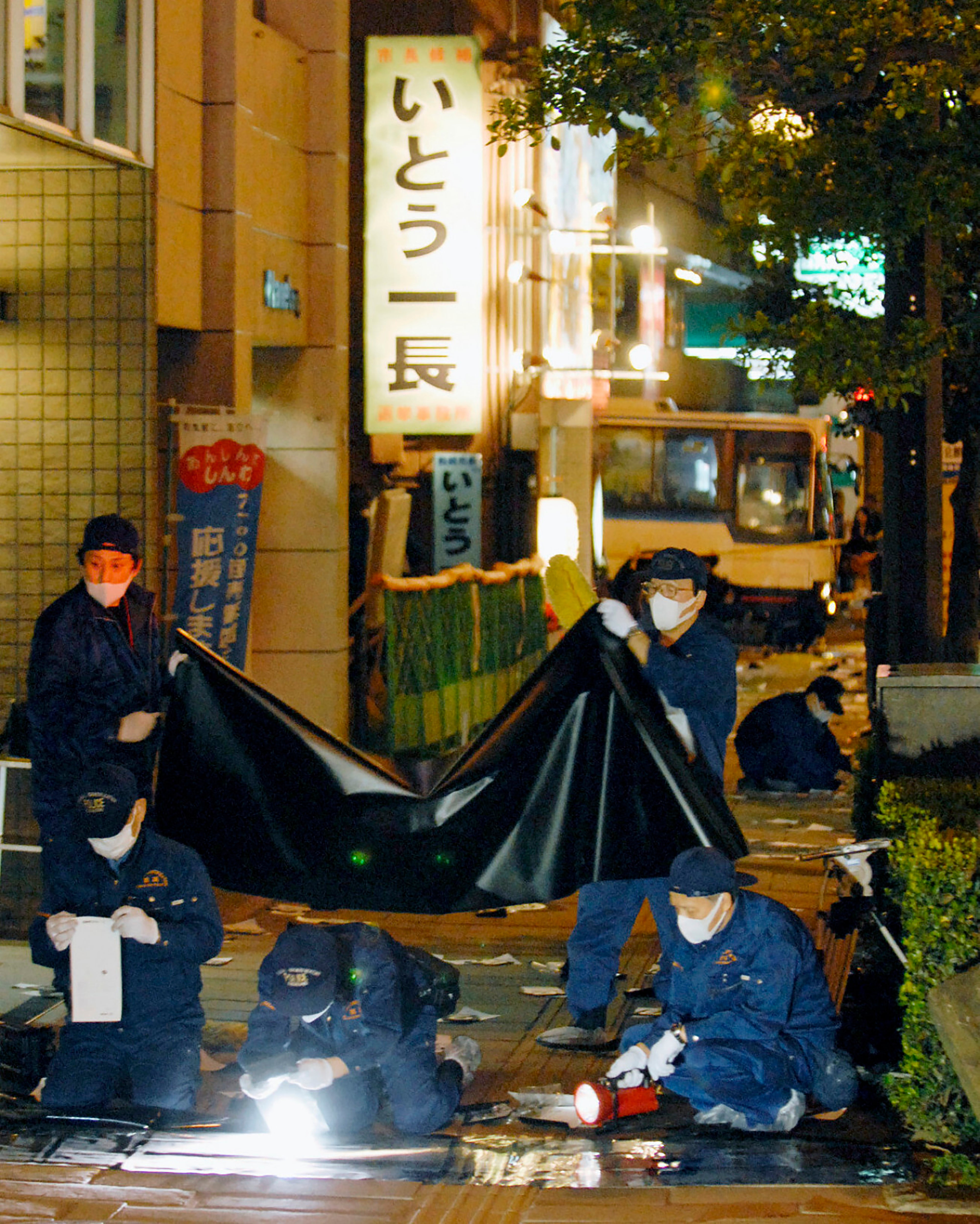The yakuza have resorted to stealing Pokemon cards. Japan is worried about the next generation of gangsters
Tokuryu are anonymous gangsters and tech-savvy young people hired for specific jobs

Your support helps us to tell the story
From reproductive rights to climate change to Big Tech, The Independent is on the ground when the story is developing. Whether it's investigating the financials of Elon Musk's pro-Trump PAC or producing our latest documentary, 'The A Word', which shines a light on the American women fighting for reproductive rights, we know how important it is to parse out the facts from the messaging.
At such a critical moment in US history, we need reporters on the ground. Your donation allows us to keep sending journalists to speak to both sides of the story.
The Independent is trusted by Americans across the entire political spectrum. And unlike many other quality news outlets, we choose not to lock Americans out of our reporting and analysis with paywalls. We believe quality journalism should be available to everyone, paid for by those who can afford it.
Your support makes all the difference.A senior member of the infamous Japanese yakuza gang was arrested for allegedly stealing Pokemon cards near Tokyo in April.
The case has been seen as an example of Japanese crime groups struggling with declining membership and resorting to petty criminal behaviour.
Police agents who were busy dealing with thousands of yakuza members just a few years ago have noticed something new: unorganized and loosely connected groups they believe are behind a series of crimes once dominated by yakuza.
Police call them “tokuryu,” anonymous gangsters and tech-savvy young people hired for specific jobs. They often cooperate with yakuza, obscuring the boundary between them and making police investigations more difficult, experts and authorities say.

The Tokyo metropolitan police are currently investigating six suspects in their 20s and 30s, most of them without connections to one another, who are believed to have been hired on social media to kill, transport and burn the bodies of an older couple at a riverbank of Nasu, 200 kilometers (124 miles) northeast of Tokyo.
“It’s a crime carried out like a part-time job,” Taihei Ogawa, a former police investigator and crime analyst, said on an online talk show. “Tasks are divided, making it difficult for police to track down where instructions come from.”
The yakuza membership has shrunk to 20,400 last year, one-third what it was two decades ago, according to the National Police Agency. It attributed the decline largely to legislation passed to combat organized crime that includes measures like barring members of designated groups from opening bank accounts, renting apartments, buying cell phones or insurance.
Yakuza once operated from well-marked offices, often with signs out front and symbols of their trade such as lanterns and samurai swords visible through the windows. They were often portrayed in films and cartoons as noble outlaws with a code of honor. Their typical rackets were extortion, gambling, prostitution, gunrunning, drug trafficking and construction kickbacks.

But gang violence in a number of neighborhoods, including the 2007 fatal shooting of Nagasaki Mayor Iccho Ito during his election campaign, have since led the government to tighten gun control, racketeering laws and other anti-gang measures.
Local residents and businesses have also stepped up and filed dozens of lawsuits against yakuza groups to bar them from their communities. In December 2022, Fukuoka city filed for a court injunction to close down an office led by the Kobe Yamaguchi-gumi branch of yakuza near elementary and junior high schools and forced it off the street six months later.
The aging of yakuza members and their financial difficulties have also hobbled the syndicate, experts say.
The number of arrested yakuza members in 2023 declined to 9,610, compared to 22,495 in 2014, according to the police.
Yakuza crackdowns have driven many members to quit and sent others underground. But they also prompted younger generations to join “tokuryu” groups rather than the traditional criminal structures, Noboru Suetomi, a criminologist and expert on yakuza, said in his recent article.
The National Police Agency describes “tokuryu” as “anonymous and fluid” groups that repeatedly form and disband via social media to carry out swindling, illegal betting, prostitution and other crimes often remotely, including from overseas.
They recruit a number of participants who are not connected to each other and assign them specific roles. While often cooperating with conventional yakuza, they invest their earnings into illegal businesses, the agency said. “They have become a threat to public safety."
While numbers are hard to track, more than 10,000 people were arrested from 2021 to 2023 for alleged swindling, illegal drug trade other crimes, such as forgery of identification cards, which were linked to “tokuryu,” records show.
In April 2022, police busted a ring of 19 people recruited anonymously who operated a fake telecom company out of Cambodia and swindled an elderly Japanese. In 2023, Tokyo police arrested six people who got in touch via social media and carried out a high-profile daytime robbery of watches and jewelry worth 300 million yen ($1.92 million) at a store in Tokyo’s posh Ginza district.
National Police chief Yasuhiro Tsuyuki, at a meeting Monday of top prefectural criminal investigators, said “tokuryu” have been part of surging cases of swindling via social media and have become a “serious concern.” He urged police across the country to make unified efforts to tackle the problem and also cooperate with authorities abroad.
Tsuyuki has said police must drastically change their anti-organized crime measures to keep up with the new menace, calling for organizational restructuring and cooperation across investigative departments, from cyber to robbery and fraud.
To reinforce measures, the police in April launched a joint investigation unit specializing in social media and telephone scams. The agency also stepped up policing in entertainment districts and measures against juvenile delinquents and motorcycle gangs.